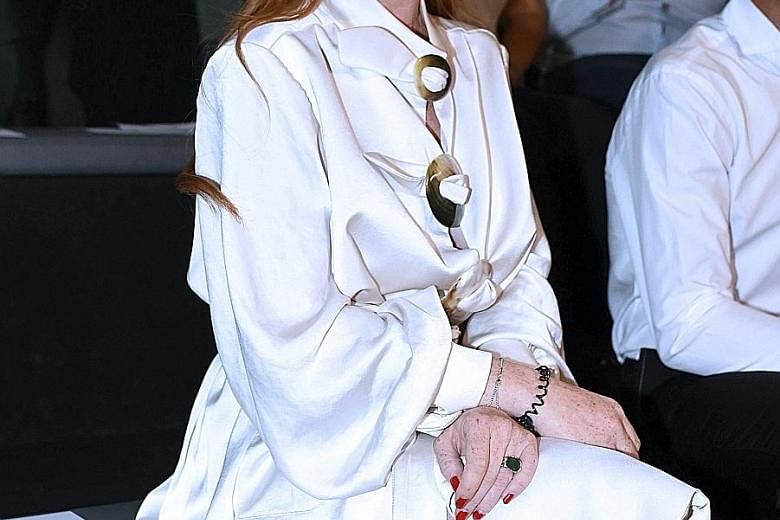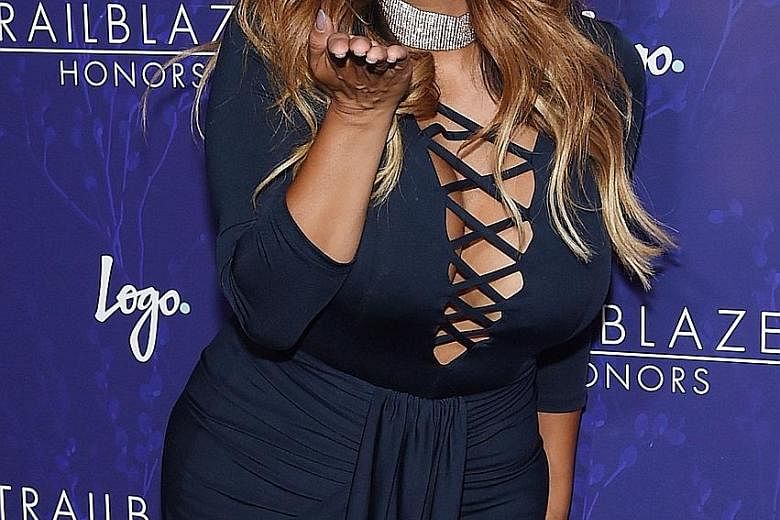WASHINGTON • Supermodel Naomi Campbell recently posted a photo of three Globe Trotter suitcases on her Instagram page.
While that drew more than 200 comments from her followers, it also caught the eye of American truth-in-advertising enforcers.
Was she paid to endorse the British brand, they wondered.
Campbell is among 21 people, including actresses Lindsay Lohan and Vanessa Hudgens, whom the United States Federal Trade Commission (FTC) recently sent letters to, as it escalates its interest in these so-called social media "influencers".
It fears that ordinary folks are often not able to tell if the endorsement is a personal one - from the celebrity's own personal experience or satisfaction over usage - or a distant commercial tie-up.
Instagram, owned by Facebook, has seen a sharp increase in recent years in promotions of products and services by famous names, often without additional information on whether they are acting as brand spokesmen.
Celebrities have talked up clothing brands, food, alcohol, spa treatments and other items.
The FTC, which sent out letters on Sept 6, wants responses by Sept 30 on whether the 21 celebrities had any "material connection" to marketers whose wares they promoted on the app.
Others who received letters included reality star Nicole "Snooki" Polizzi, Modern Family star Sofia Vergara, model Amber Rose and Scott Disick, a former boyfriend of reality star Kourtney Kardashian.
In May, the agency released dozens of letters it had sent to companies and stars giving them notice that they must tell fans about compensation for promotions on social media. Those letters are known within the agency as educational letters, whereas the recent ones are described as warning letters.
For repeat offenders, the FTC could seek to impose fines.
In Campbell's case, the FTC noted that her post had no disclosure. If she had a marketing deal, then she should tell the FTC what actions she will be taking to ensure disclosure, the letter said. Campbell's Instagram account has 4.3 million followers.
In Britain, the advertising watchdogs are on the alert too in the campaign for greater transparency.
Influencers have had to identify advertisements with the hashtags #ad or #spon (sponsored) since 2014, The Guardian reported.
In April, make-up blogger Sheikhbeauty failed to comply with Britain's Advertising Standards Authority (ASA) regulations as she did not clearly refer to a post about a herbal detox tea brand as an advertisement.
The ASA also ordered reality television personality Sophie Kasaei to remove her photo of the Flat Tummy Tea she had shared with her one million-plus followers in March, saying that it breached rules over nutrition or health claims.
Meanwhile, the FTC looks set to have a big challenge on its hands.
According to US marketing company Mediakix in May, analysis of the 50 most-followed celebrities on Instagram revealed that 93 per cent of posts promoting a brand were not compliant with the FTC guidelines.
But the commission is getting help from Instagram, which recently confirmed that it would soon roll out a "Paid partnership with" tag to "more clearly communicate when a commercial relationship exists between a creator and a business". It will be tied to the platform's first branded content policy, restricting the posting of sponsored content to accounts with access to the tag.
On Instagram, the amount brands are devoting to influencers is more than US$1 billion (S$1.35 billion) a year, said Mediakix.
REUTERS


